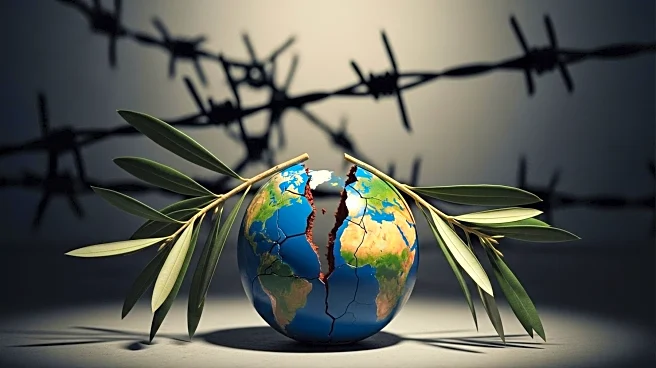What's Happening?
Tal Shoham, an Israeli hostage recently freed from Hamas captivity, has expressed skepticism about achieving peace with Palestinians in the current generation. Shoham, who was abducted along with his family during a Hamas attack on Kibbutz Be'eri, recounts the traumatic experience and the deep-seated hatred he observed. Despite ongoing negotiations in Egypt aimed at ending the Gaza conflict, Shoham doubts that U.S. President Trump's pressure on Israel and Hamas will lead to lasting peace. His experience highlights the challenges of overcoming entrenched animosities in the region.
Why It's Important?
Shoham's perspective underscores the difficulties in achieving peace in the Middle East, particularly between Israel and Palestine. His experiences reflect the broader societal and political challenges that hinder reconciliation efforts. The skepticism about peace impacts U.S. foreign policy and its role in mediating conflicts in the region. The ongoing violence and deep-rooted hatred could affect future diplomatic strategies and international relations, influencing how peace negotiations are approached.
What's Next?
Negotiations in Egypt continue as stakeholders seek to end the Gaza conflict. The U.S. and other international actors may need to reassess their strategies to address the underlying issues that Shoham highlights. The focus may shift towards long-term solutions that address societal hatred and promote coexistence. The outcome of these talks could influence future peace efforts and the role of international mediators in the region.
Beyond the Headlines
The cultural and psychological impact of prolonged conflict on individuals and communities is significant. Shoham's experience highlights the need for addressing trauma and fostering understanding between conflicting parties. Ethical considerations involve ensuring that peace efforts do not overlook the human cost of conflict. Long-term shifts could include changes in educational and societal narratives to promote peace and reconciliation.









